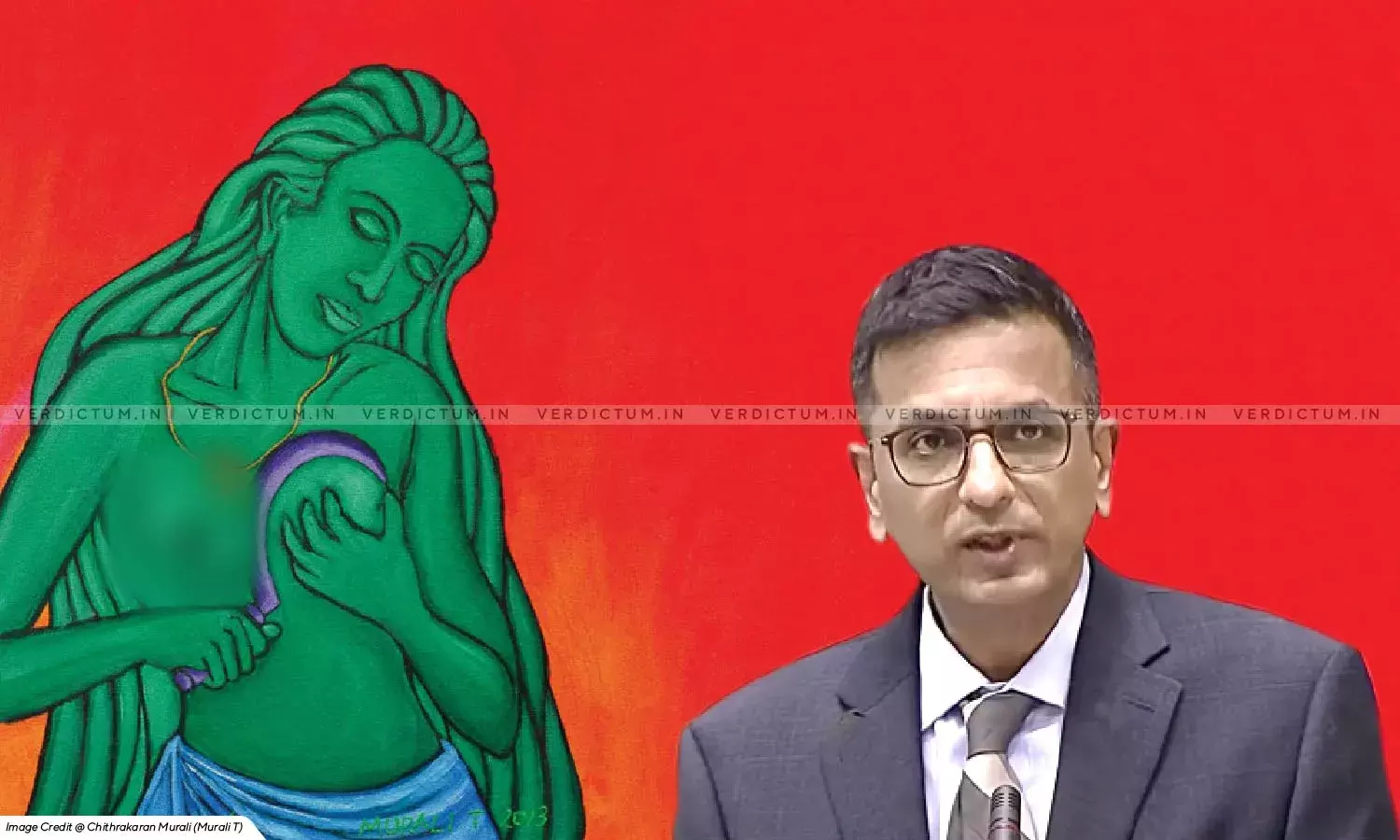CJI DY Chandrachud Cites Nangeli And Breast Tax, Veracity Of Which Is Disputed

CJI Dhananjaya Yashwant Chandrachud delivered the Ashok Desai Memorial lecture on December 17 2022 in Mumbai. The event had been organised in the memories of late Senior Advocate Ashok H Desai, who served as the Attorney General of India from 1996 to 1998. A galaxy of judges and former judges were present at the event, including Justice Dipankar Datta and Acting CJ Sanjay Gangapurwala of the Bombay High Court.
TheCJI's lecture was on the subject "Law and Morality", and while speaking about Advocate Ashok Desai, the CJI remarked that the late advocate had often defended the rights of the marginalised section of the society.
Referring to the deciding force behind the formulation of morality, the CJI questioned, "Who decides the code of conduct or morality?", and subsequently opined that itis "The dominant groups, which overpower the weaker ones. Members of weaker and marginalised have to submit to the dominant groups. They can't develop their own counter culture because of the oppression.".
In a similar vein, the CJI also cited Dr. BR Ambedkar, who had made several observations as to why lower caste Hindus were not allowed to get educated, and so on. The CJI further referred to Nangeli, who is said to have cut off her breast to oppose the breast tax. The CJI said that "It was a cry of anguish against social stratification. When Dr BR Ambedkar dressed in a three-piece suit, he reclaimed his community's status in society."
However, the veracity of the legend ofNageli is highly disputed.
Asper the legend, Nangeli was an Ezhava woman who had lived in the early 19thcentury in the erstwhile princely state of Travancore. As per disputed beliefs, the "breast tax" was imposed on lower caste women by the upper caste, if they covered their breasts in public, in order to discourage them from doing so. The"breast tax" caught wide public attention in 2016, after BBC published a report on a series of paintings on the legend of Nageli.
Asper local beliefs, Nangeli had revolted against the village officer who had come to survey her breasts and collect the tax, and she had chopped off her breasts and handed them to him in a plantain leaf. She subsequently bled to death and soon after her death, the breast tax system was supposedly annulled in Travancore.
The dispute of the veracity of this legend arises from the fact that this tale is not recognised by any of India's historical accounts. Historians who oppose the authenticity of this legend claim that "breast tax" is a misnomer, and was simply the same given to a blanket tax collected from women. It is also alleged that the attire people donned was a choice they made on the basis of weather conditions. It is further noticed that covering the body above the waist was not a norm in the Indian continent, regardless of caste.
Notably, it is undisputed that the lower caste did not have access to education, or the ability to adequately document their history. As a result, a large portion of Indian history prevails through folklore, songs, and stories, all of which are subject to being exaggerated or being distorted and/or lost in transmission. Resultantly, such legends cannot form reliable historical accounts. The same remains true for the legend of Nangeli. It can be argued that citing such accounts without caveats, as if they are facts, does not augur well for healthy public discourse.

